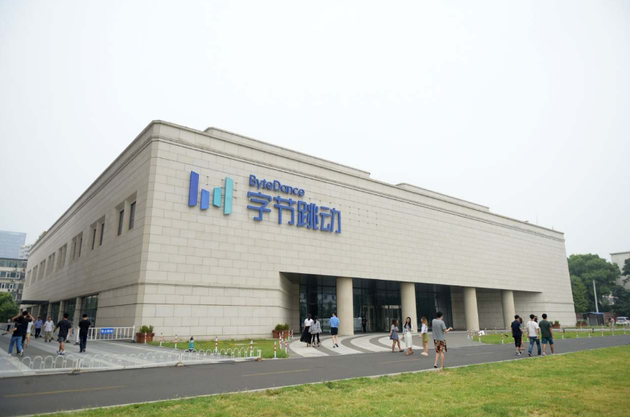Oct. 11 (NBD) -- ByteDance, operator of China's popular short video platform TikTok, has set up game teams in China's five metropolis: Beijing, Shanghai, Guangzhou, Shenzhen and Hangzhou, and is alluring talents to enlarge the teams, according to a news report on Thursday.
An internal document showcased that a large number of game-related positions are involved such as research & development, marketing & sales, as well as operation & editing.

Photo/VCG
National Business Daily (NBD) noticed that as early as June, media reports revealed ByteDance's move to establish a game team of about 100 people, launching a project dubbed Oasis to focus on self-developed hardcore games.
Some held the thick profits brought by the game business was the main reason for ByteDance's foray into the sector.
A comparison between the revenue reaped by ByteDance and Chinese game giant Tencent might be strongly convincing. ByteDance was expected to harvest 50 billion yuan (7.1 billion U.S. dollars) of total revenue in 2018 while Tencent gained over 104 billion yuan of revenue from game business alone for the same period.
ByteDance hasn't been shy about its ambition in the game segment. In 2018, it merged a casual game developer, and early this year, the company threw much money at acquiring Sunho Games and Mokun Technology. Moreover, TikTok began to be a mobile game agent and develop in-app casual games.
Looking to the whole game industry, NBD found despite the suspension of game approvals in China last year, the industry still boasts huge development space. A report compiled by GPC and CNG indicated China's game market reached 214.4 billion yuan last year. In the first half of 2019, actual sales revenue from the market stood at over 114 billion yuan.
Currently the game industry has seen fierce competition with titans like Tencent and NetEase dominating the domain and small players struggling to secure a larger slice of the market.
To stand out, ByteDance should have something peculiar. According to an industry insider, ByteDance plans to develop AI-based customized games as the company's other sought-after products like news and information aggregator Jinri Toutiao and TikTok achieved success via AI-based algorithm for personalized recommendation.
Hong Tao, founder of game media platform Gamelook, commented that ByteDance chose a same way as Tencent since both companies developed agent business at first to grab the distribution channels and then bought experienced game firms and forged teams to launch self-developed games.
But many insiders warned that it's not easy for ByteDance to catch up from behind amid challenges from those long-standing dominators, especially Tencent.
"ByteDance can't match Tencent in terms of talents, operational experience and IP reserves," said Luo Siji, a game media practitioner. Hong Tao echoed the view, adding that it often takes 3-5 years to nurture a mature mobile game.
At the same time, ByteDance's mainstream products cost much of users' time, which might cause conflict with games, said Luo.
Email: gaohan@nbd.com.cn


 川公网安备 51019002001991号
川公网安备 51019002001991号





